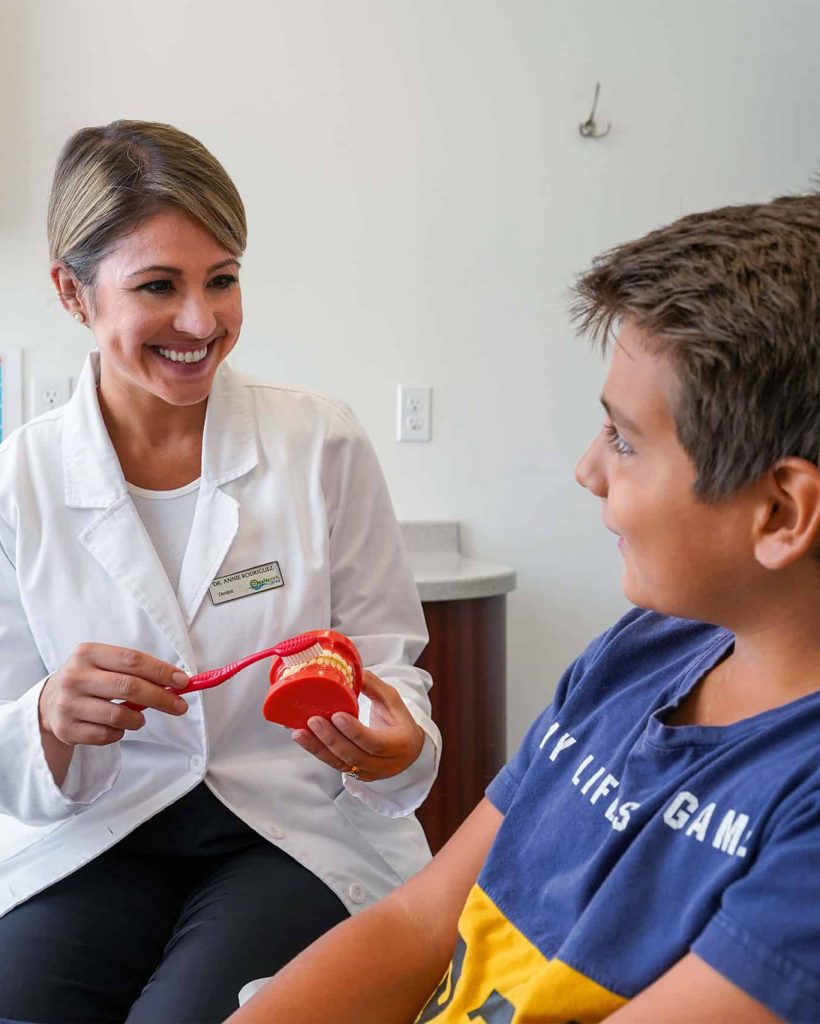Newmarket Sealants
- Home
- Services
- Children's Dentistry
- Sealants
Dental Sealants for Children in Newmarket
Protect Your Child's Smile: Professional Dental Sealants
Protect your child’s teeth from decay with dental sealants, a safe and effective way to prevent cavities in hard-to-clean areas. At Oasispark Dental, we provide professional sealant application to create a protective barrier against bacteria and food particles, helping to ensure your child’s long-term dental health.

The Benefits of Dental Sealants
Dental sealants offer powerful protection for your child’s developing teeth. These treatments:
- Prevent up to 80% of cavities in treated teeth by creating a smooth, protective shield over vulnerable tooth surfaces
- Last for several years with proper care, providing long-term protection throughout cavity-prone childhood years
- Save time and money by reducing the need for fillings and other dental treatments
- Provide pain-free protection without requiring any drilling or removal of tooth structure
By choosing dental sealants, you can protect your child’s natural teeth and avoid costly dental procedures in the future.
What to Expect During Sealant Application
The sealant procedure is quick, comfortable, and completely pain-free. First, the teeth are thoroughly cleaned and dried. Then, a special gel is applied to create a strong bond with the tooth surface. The liquid sealant is carefully painted onto the chewing surfaces of the back teeth, flowing into the deep grooves where cavities often start.
A special light is used to harden the sealant in just a few seconds, creating an invisible protective shield. The entire process takes just a few minutes per tooth, and your child can eat and drink normally right after the procedure.
Book A Free Consultation
Call (905) 953-8115
for emergency services or fill out the form below to book an appointment.
Other Dental Services
Office Hours
- Monday: 9 AM–5 PM
- Tuesday: 9 AM–5 PM
- Wednesday: 9 AM–6 PM
- Thursday: 9 AM–7 PM
- Friday: 9 AM–2 PM
- Saturday: 9 AM–2 PM
- Sunday: Closed


Everything You Need To Know About Your Dental Care
Frequently Asked Questions
At Oasispark Dental, we understand that you may have questions about your oral health and the dental services we provide. That’s why we’ve compiled answers to some of the most common questions we receive. If you don’t see your question here, feel free to reach out to our team—we’re always happy to help!
Sealants are typically recommended when the permanent molars first emerge, usually between ages 6-14, though they can be beneficial at any age.
Yes, dental sealants are completely safe and have been used effectively for over 40 years to prevent cavities in children and adults.
With proper care, sealants can last 5-10 years. We check their condition during regular dental visits and can reapply if necessary.
Without sealants, deep grooves in back teeth are more likely to trap food and bacteria, leading to increased risk of cavities and potentially requiring more extensive dental work later.
Need A Consultation?
Give us a call or contact us through our contact form for more information on how to set up your complimentary consultation!
